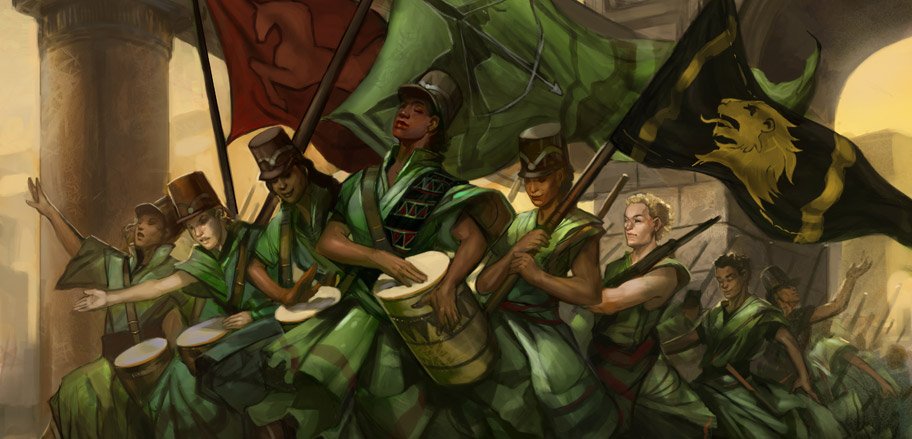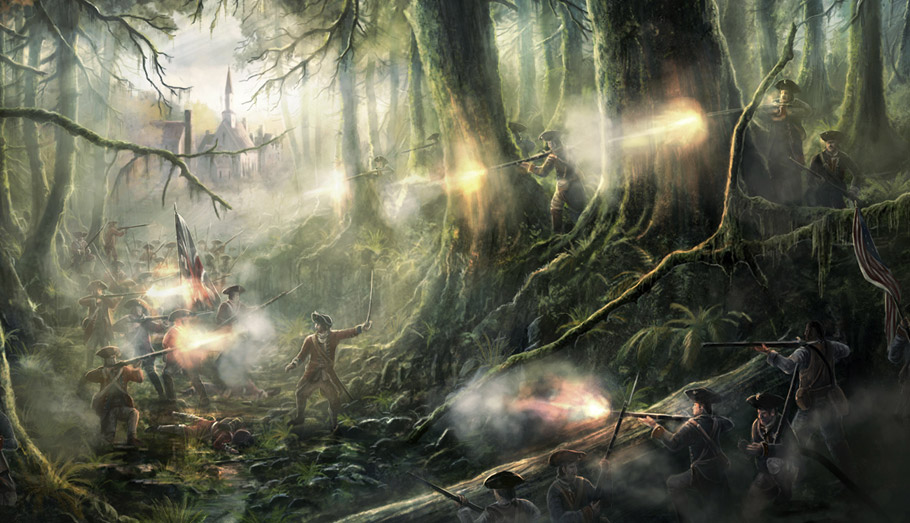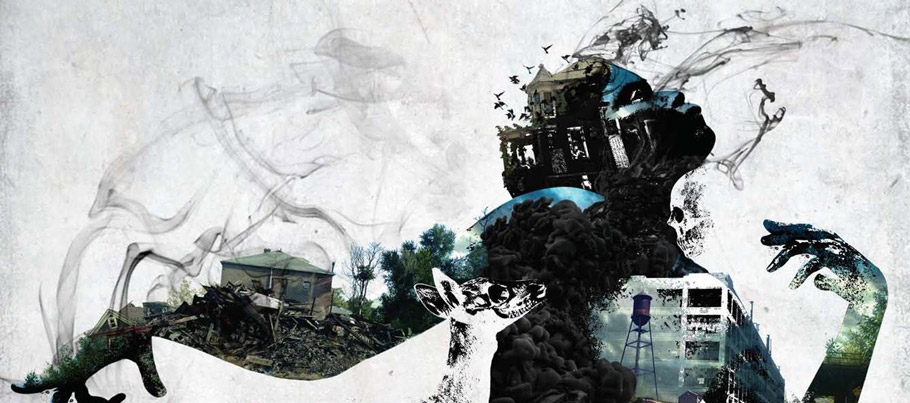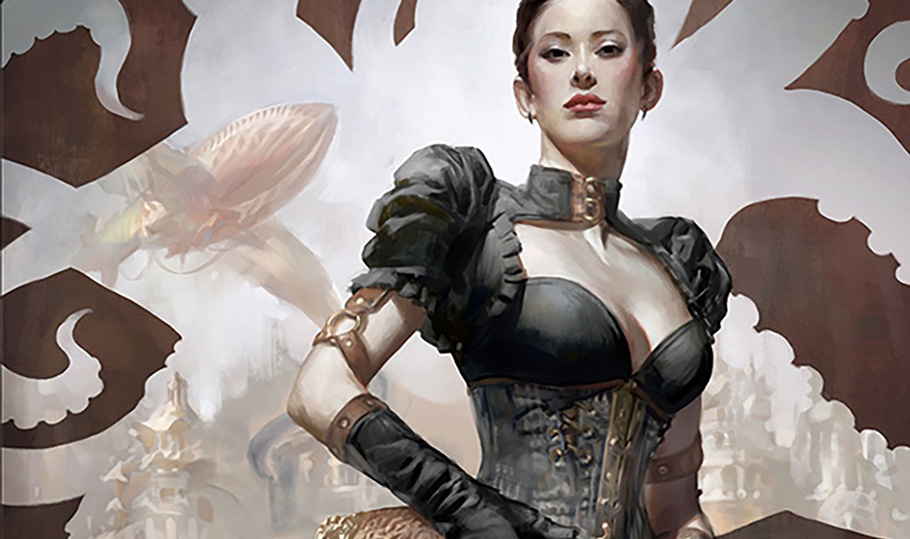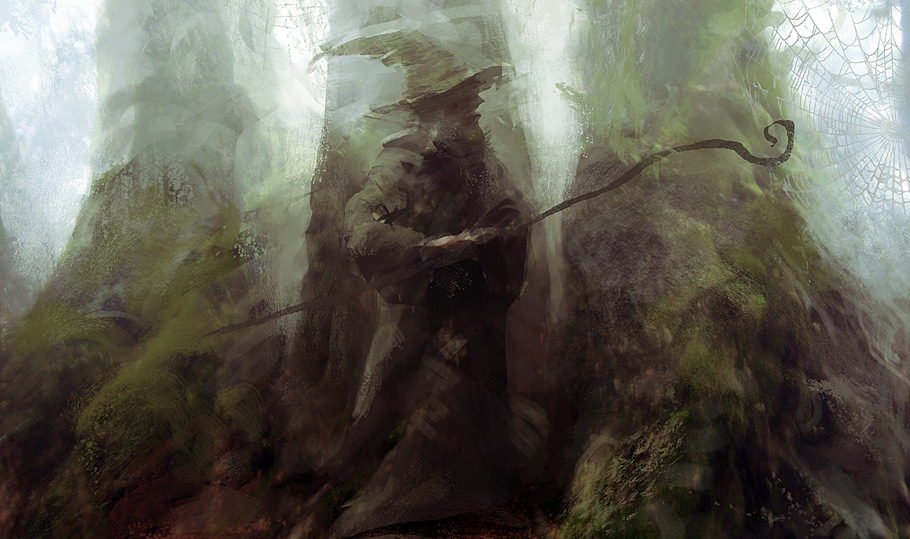Kate Elliott’s fiction first came to my attention in the mid-’90s. In the age before the rise of massive social media, I discovered authors through publications like Locus, and through things like award nomination lists. When King’s Dragon showed up on the Nebula shortlist for novels published in 1997 (a ballot that also coincidentally included an unassuming novel titled by a chap named Martin), I was excited to try a new author, and one tackling epic fantasy at that! I was pleased to find that King’s Dragon offered deep and intricate worldbuilding, strong female characters, perspectives on issues and facets of epic fantasy worlds that don’t always get much play, and a willingness to go dark when necessary. This was definitely something different than the epic fantasy of the ’80s I devoured as a teenager. I was hooked on Kate’s work. Hard.
I started reading backward into her œuvre, and then forward ever since.
Though also an author of several science fiction novels (Jaran, for instance, might be considered as Genghis Khan meets Jane Austen in space!), Elliott is best known for being one of the cornerstones of epic fantasy writing starting in the mid 90s and continuing strongly to this day. While many of the innovations and style of Elliott’s rising carries through all of her work, the series’ themselves are individual and distinct in manner, matter, and tone. There is a Kate Elliott fantasy series for nearly every taste of reader. Read More »
Guns of the Dawn is set in a fantasy world: there are wizards, there are sentient non-human races, the names of the nations are all fictitious. At the same time, Guns is far more of an ‘echo history’ than Shadows of the Apt was . Specifically, the world and time of Emily Marshwic and her peers is a distorted mirror of Regency England, the start of the 19th century and the Napoleonic war. There are other strands in there – something of the English Civil War, something of the American War of Independence (for it is a war story) – but the Regency thread is by far the strongest. Read More »
I seldom felt that this fiction resonated with my experience of South Africa
South African speculative fiction is single-handedly responsible for getting me interested in my own country’s fiction. If you’re from the US or UK you’ve probably never thought of the novels from your country as being largely monolithic or just completely avoided all of them on the assumption that they would be dreary. But that’s exactly how I felt.
Because we were in school after the change in government, many people in my generation seem to have grown up thinking of local fiction as synonymous with the kinds of depressingly tragic political books you were forced to read for class. Books about racism, poverty, apartheid – that’s how I’ve often heard them described. South African books were grim, weighty things. Important and well-crafted maybe, but they offered no pleasure or entertainment. For the few who liked reading (we don’t have a strong reading culture) all the books you could actually enjoy came from somewhere else. Read More »
“Gosh, Bear,” you might think, “at least she’s a good person, in spite of being a prostitute!”
Hi! I’m Elizabeth Bear, the author of Karen Memory, and I’m here to talk about the fine art of avoiding some of Western literature’s most tired sex-worker tropes, such as The Disposable Prostitute and The Hooker with a Heart Of Gold.
On The Hooker with a Heart of Gold… words to strike dread into the hearts of… well, everybody who ever consciously tried, in their work, to avoid a stereotype. Any stereotype. And it’s not the only—or worst—stereotype—of sex workers around!
“Gosh, Bear,” you might think, “at least she’s a good person, in spite of being a prostitute!” Read More »
“Petite, her silver hair shining, Le Guin shrugged and grinned when Neil Gaiman placed the medal around her neck,” described The New Yorker of Ursula K. Le Guin when she accepted the Medal for Distinguished Contribution to American Letters presented by the National Book Awards on November 19, 2014. Le Guin might be petite in stature, perhaps, but her words in acceptance of the achievement were anything but small.
“Hard times are coming,” she said, her voice ringing out over an awed crowd. . “We’ll be wanting the voices of writers who can see alternatives to how we live now, can see through our fear-stricken society and its obsessive technologies to other ways of being, and even imagine real grounds for hope. We’ll need writers who can remember freedom – poets, visionaries – realists of a larger reality.”
Le Guin is a legendary figure in science fiction and fantasy, author of many classics, such as The Left Hand of Darkness and The Wizard of Earthsea, and a champion for literature’s place in the every changing landscape of modern society — a “realist of a larger reality” is there ever was one. Her acceptance speech rang through the SFF community and beyond, a tolling bell of optimism. Through her ongoing insistence to use fiction as a lens through which we examine ourselves, Le Guin, and writers like her — poets, visionaries, realists of a larger reality — has continued to challenge speculative fiction to be a catalyst for positive change, a limitless medium that can offer hope to a world that obsesses over hopelessness. Read More »
